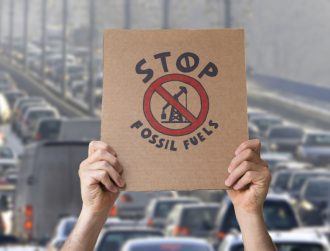
Image: © lkonya/Stock.adobe.com
While Ireland saw rain for much of the summer, the world was 0.24 degrees Celsius warmer last month than any other July.
As hard as it might be to believe for people living in Ireland and its neighbouring island, NASA says July was the hottest month on record since 1880.
Scientists at NASA’s Goddard Institute for Space Studies in New York issued a stark warning about rising global temperatures as it found July 2023 was 0.24 degrees Celsius warmer than other July on record.
More importantly, last month was 1.18 degrees Celsius warmer than the average July between 1951 and 1980.
“NASA data confirms what billions around the world literally felt: temperatures in July 2023 made it the hottest month on record,” said NASA administrator Bill Nelson. “In every corner of the country, Americans are right now experiencing firsthand the effects of the climate crisis.”
Nelson argued that the findings underscore the urgency of US President Joe Biden’s historic agenda to fight the climate crisis, as part of which he signed the Inflation Reduction Act a year ago.
“The science is clear. We must act now to protect our communities and planet; it’s the only one we have,” Nelson added.
The news comes even as Ireland and the UK have experienced an unusually rainy summer. In fact, data from Met Éireann earlier this month suggested July was one of the wettest on record.
“Climate change is impacting people and ecosystems around the world, and we expect many of these impacts to escalate with continued warming,” said Katherine Calvin, chief scientist and senior climate advisor at NASA headquarters in Washington.
“Our agency observes climate change, its impacts and its drivers, like greenhouse gases, and we are committed providing this information to help people plan for the future.”
Despite these warnings, Ireland is not on track to meet its climate commitments.
The Climate Change Advisory Council issued a warning last month that if the current rate of policy implementation is to continue, Ireland will not meet its climate targets for either of the two carbon budget periods between 2021 to 2030.
The World Meteorological Organization said in May that there is a 98pc chance that at least one of the next five years “and the five-year period as a whole” will be the warmest on record. Meanwhile, the first week of this month was the hottest week ever recorded.
10 things you need to know direct to your inbox every weekday. Sign up for the Daily Brief, Silicon Republic’s digest of essential sci-tech news.






